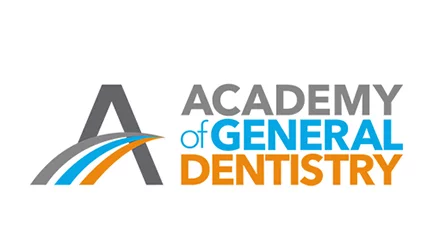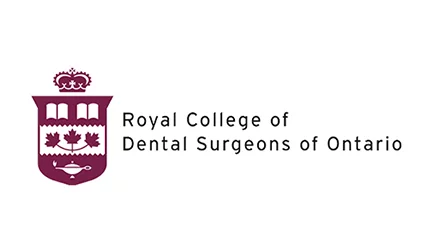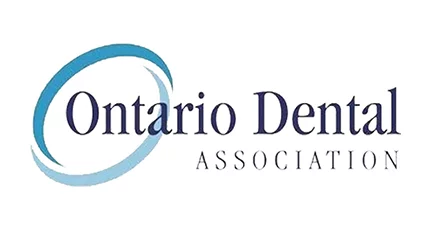DENTAL BRIDGE
COST-EFFECTIVE AND SUCCESSFUL DENTAL BRIDGE TREATMENT
We believe that the best teeth are your original teeth. But sometimes, a tooth is badly damaged or lost. One of the options available to replace a lost tooth (or teeth) is a dental bridge. A bridge involves one or more false teeth held in place and surrounded by healthy or natural teeth.
STEPS INVOLVED IN THE FITTING OF DENTAL BRIDGES
A dental bridge fitting involves several steps:
- Firstly, the teeth on each side of the missing one(s) are filled and shaped to prepare bridge fitting; these teeth are called abutments.
- After that, a dental laboratory works to custom hand-craft the bridge per your dental structure, mimicking the size, shape, and color of your natural teeth. This can take 1 – 2 weeks; during this time, a temporary bridge is placed on your teeth. The temporary bridge is designed to protect your teeth and gums but is not durable enough to last for a more extended period.
- When your bridge is ready, your dentist will remove the temporary bridge, clean away the temporary cement and check the fit of the new bridge. If everything is suitable, the bridge will be cemented to your teeth. A bridge is not removable; once cemented, it remains in place.
It is essential to take good care of your bridge with regular brushing, flossing, check-ups, and cleanings.
Call us today at (416) 691-8555 or schedule an appointment to learn more.
DIFFERENT TYPES OF DENTAL BRIDGES
Generally, we offer three main types of dental bridge services.
1. TRADITIONAL FIXED BRIDGES
Traditional bridges are the most widely used, and you might be familiar with them. These bridges create a filler tooth, supported by dental crowns, and are placed on healthy teeth on both sides of gaps in the mouth to keep the bridges fixed in one place.
Fixed tooth bridges replace lost teeth if healthier teeth are present on either side of missing teeth to support the dental bridge. During the fitting process, the healthy teeth on either side of the gap need reshaping so the dental bridge can be placed.
- Traditional fixed bridges prevent the dislocation of remaining teeth.
- Fixed dental bridges are stable and easy to clean.
- Reduces the risks of bone loss.
2. MARYLAND BONDED BRIDGE
Maryland bonded bridges have the same structure as traditional fixed dental bridges. However, dentists use a porcelain or metal framework in these bridges rather than dental crowns. Through the utilization of this framework, the need to modify the remaining teeth is eliminated.
- Maryland bonded bridges’ cost is less than traditional fixed bridges.
- They don’t need modifications in the abutment teeth during their placement.
- They are primarily used in the anterior part of the jaws.
- They provide aesthetic satisfaction.
3. CANTILEVER DENTAL BRIDGES
The cantilever dental bridges require a single tooth for support. They are different in structure than the traditional fixed dental bridges. The dentists place these bridges only in the anterior part of the mouth i.e., in the front teeth.
Because they require a single tooth for anchor, so too much strain can’t be put on them. That’s why dentists don’t advise these bridges to be placed in the posterior part of your mouth.
- It can save time during the placement process.
- They look natural.
- Cantilever tooth bridges are considered to be affordable.
- They are less invasive.
- Easy to place.
- Generally, long-lasting.
WHAT IS THE PRIME GOAL OF DENTAL BRIDGE SERVICES?
The prime objective of dental bridges is to fix the gaps in your teeth. It is also acknowledged as restorative and cosmetic dentistry because it helps to restore your oral shape and oral looks.
- Reshapes the teeth to ensure that the dental tooth bridge can fit over them.
- Maintains patient’s face shape by preventing the sunken-in appearance.
- Prevents the dislocation of teeth.
- Reduces the risks of bone loss.
- With good oral hygiene, bridges can last more than ten years.
The bridge can be made from:
- Gold alloys
- Various metals
- Acrylic or porcelain
WHY IS THE COST OF DENTAL BRIDGES IN CANADA INCREASING?
Several reasons will directly influence the tooth bridge cost in Canada, such as:
- The type of bridge you pick.
- The number of teeth that needs to be filled in the gap.
- The materials used to make the teeth are usually metal or porcelain, costing you more.
- The difficulty of the placement.
- Additional treatments to support teeth.
THE ESTIMATED COST OF DENTAL BRIDGE SERVICES
- A traditional bridge costs between $1,500 and $5,000.
- Maryland bridges typically cost from $1500 to $2,500.
- An implant-supported bridge could cost between $4,000 and $15,000.
Dental Bridge Services are generally expensive because the bridge is custom-made by a skilled lab technician to fit your teeth accurately. If your case is complex and your dental shape is already distorted, it may be hard for the dentist to fix your dental condition.
However, one of the significant reasons the tooth bridge cost in Canada is so high is because the dentists charge you additional fees for the following services:
- Diagnostic costs.
- An examination fee is also implemented.
- Digital X-ray might be requested to know the exact location of decay; this may typically range from $60 – $150.
- Treatment options will also include local anaesthesia costs.
- Additional fees may be added if the case was presented in an emergency or after-hours appointment.
MEDICINES PRESCRIBED AFTER DENTAL BRIDGE SERVICES
There might be a few medications prescribed by your dentists, such as ibuprofen or naproxen., The dentist will specifically prescribe these medicines if you experience unbearable pain after the treatment. However, none of these medications are too expensive.
HAVE AFFORDABLE DENTAL BRIDGE SERVICES AT BALSAM DENTAL
If your teeth are hurt or damaged, they should be treated immediately since they will keep you from suffering several headaches in the coming years. Here are the top ways that your dental care can be covered cost-effectively at Balsam Dental.
- Dental Insurance: You can get most of your dental treatments covered under insurance. However, the policies for dental insurance differ from place to place. But Balsam Dental ensure our clients that they can get high-end dental services that would satiate their needs under their dental insurance.
- Flexible savings accounts: Flexible spending arrangement refers to an amount that is pretax dollars taken from your pay each month to be used for health care expenses. FSA is available only to employers who offer it. It is usually covered with an account with a debit card.
- Government Programs: Unfortunately, Medicare cannot pay for dental treatments since it only covers urgent hospital treatment. The only method Medicare will pay for dental care is in the event of an emergency. However, it cannot be produced as a dental treatment by itself. If this plan covers you, check your Medicare to confirm.
You can find the best Dental Bridge Services at Balsam Dental, where we provide quality at affordable prices. We aim to give you better dental bridge service despite the cost. We also offer several other dental experiences, such as dental crowns. Contact us today for further information.











